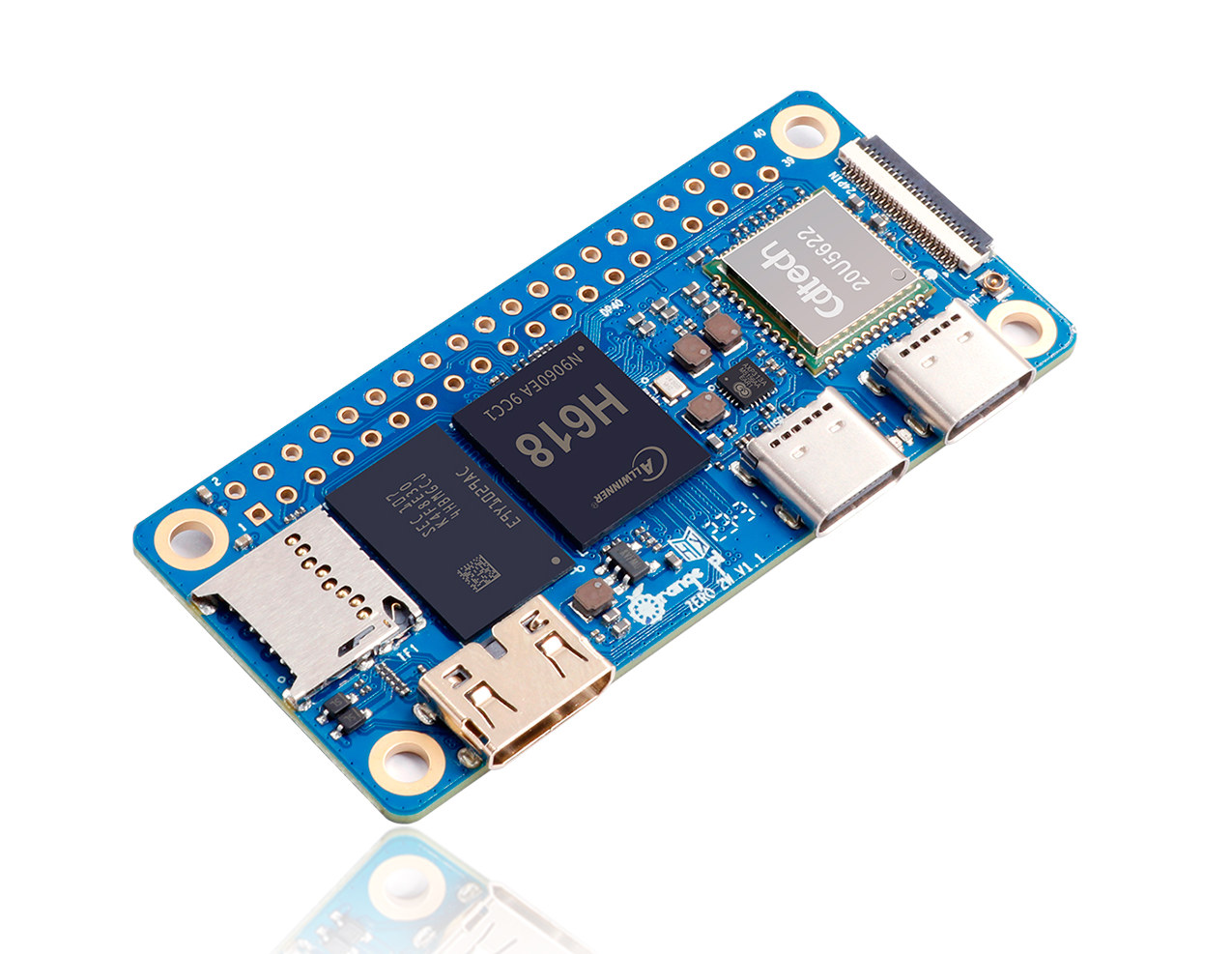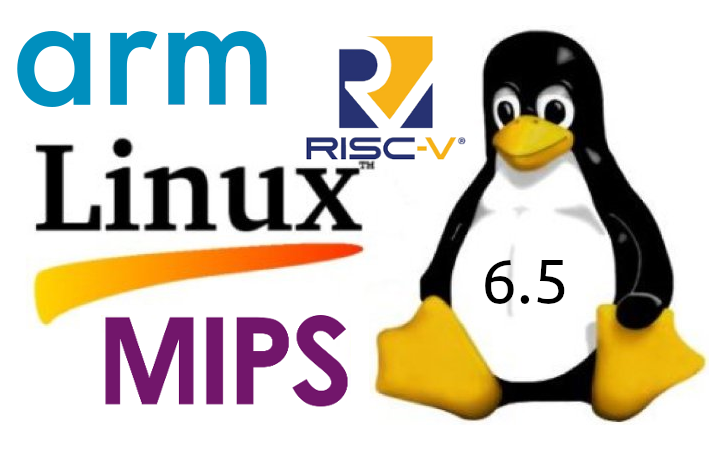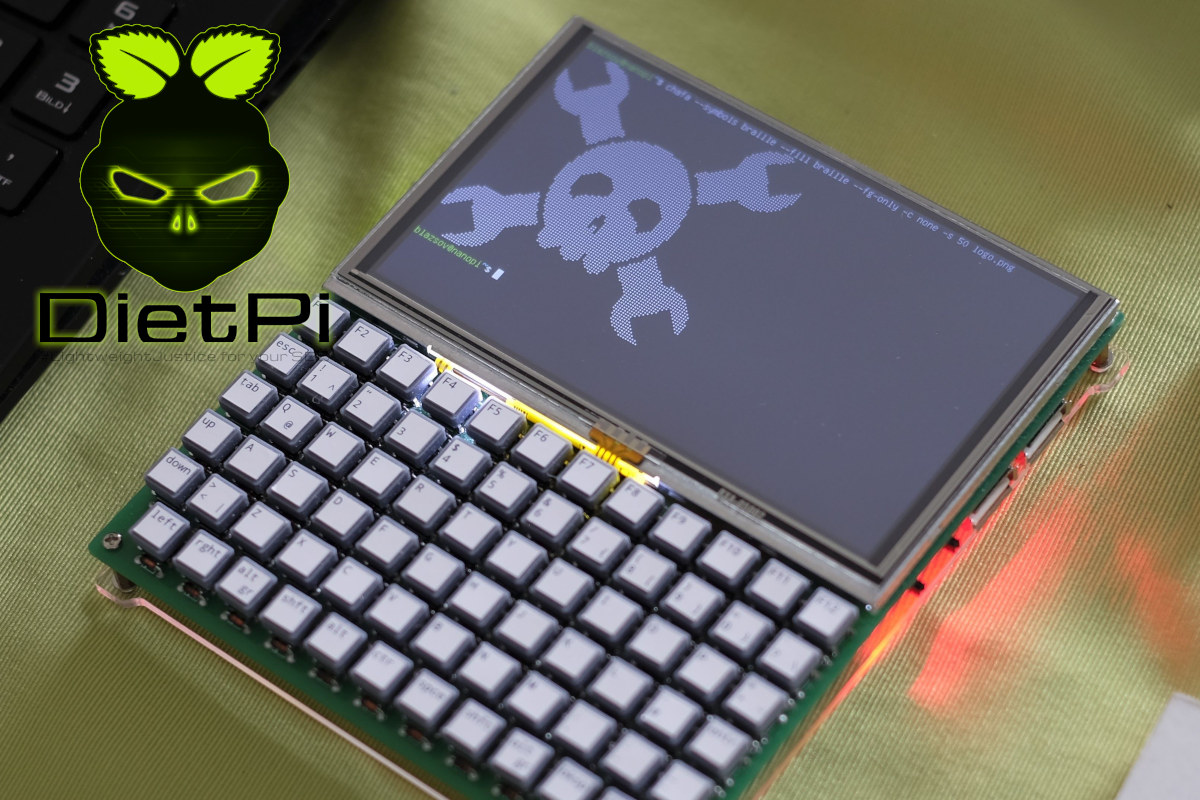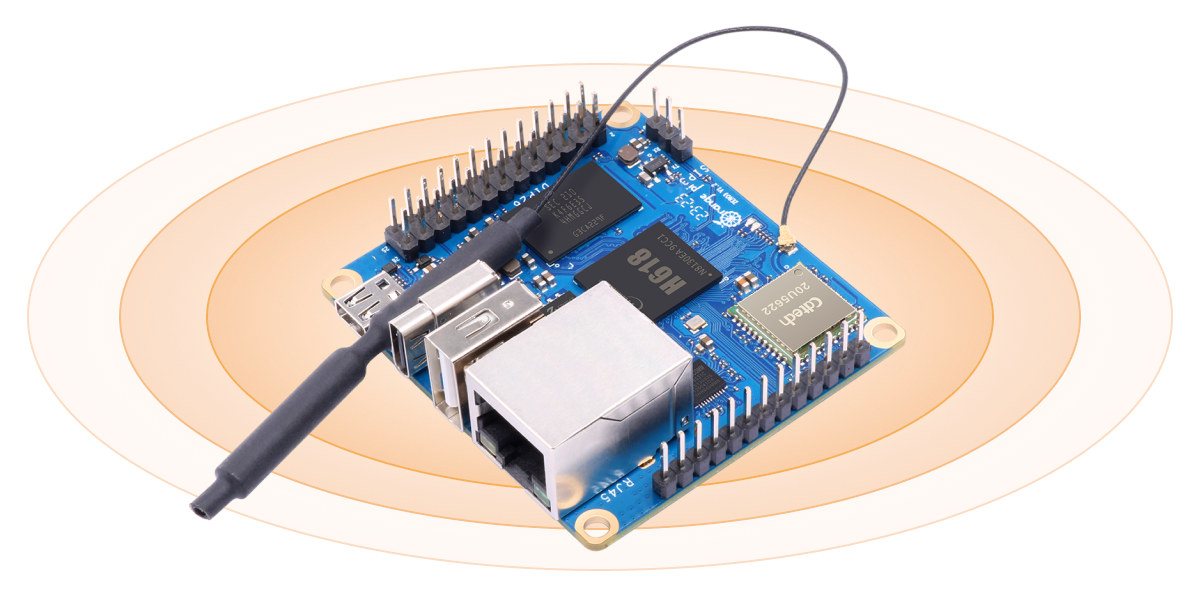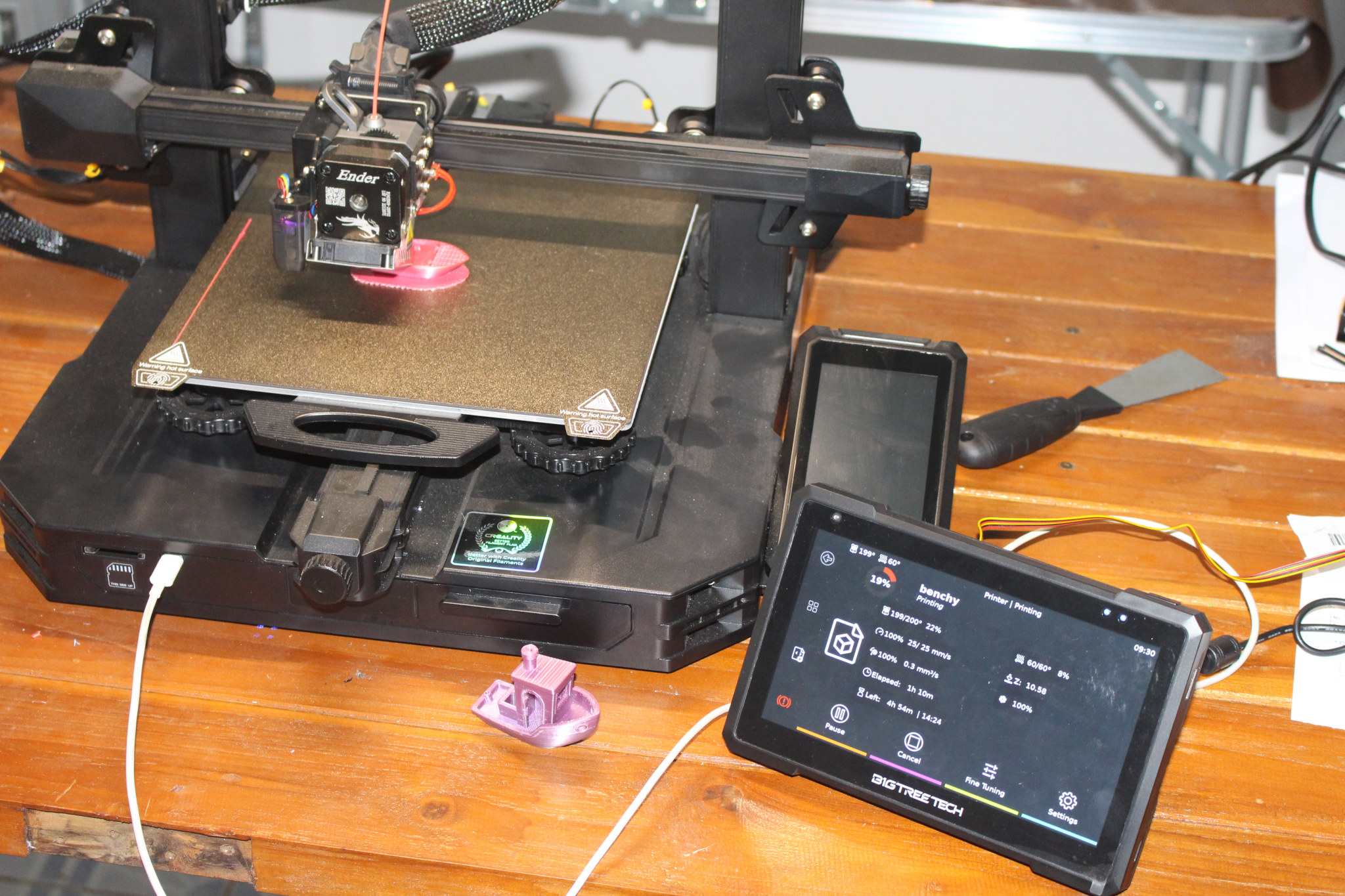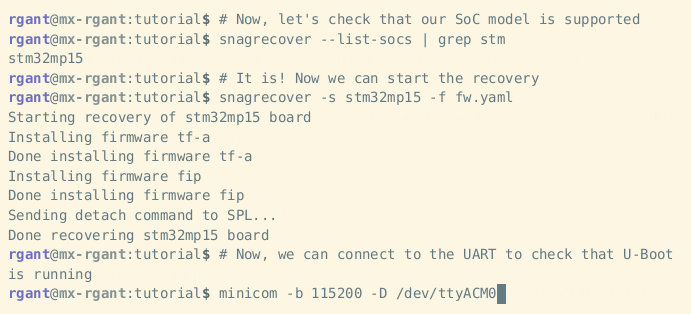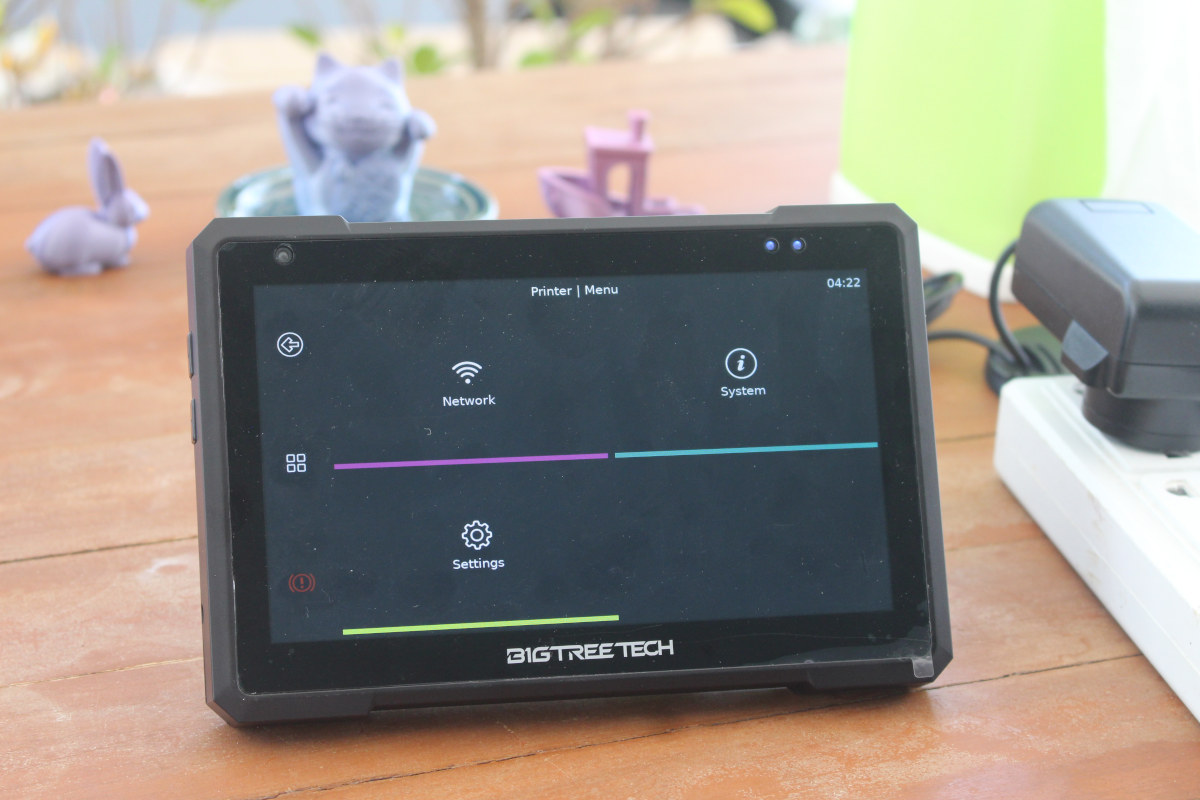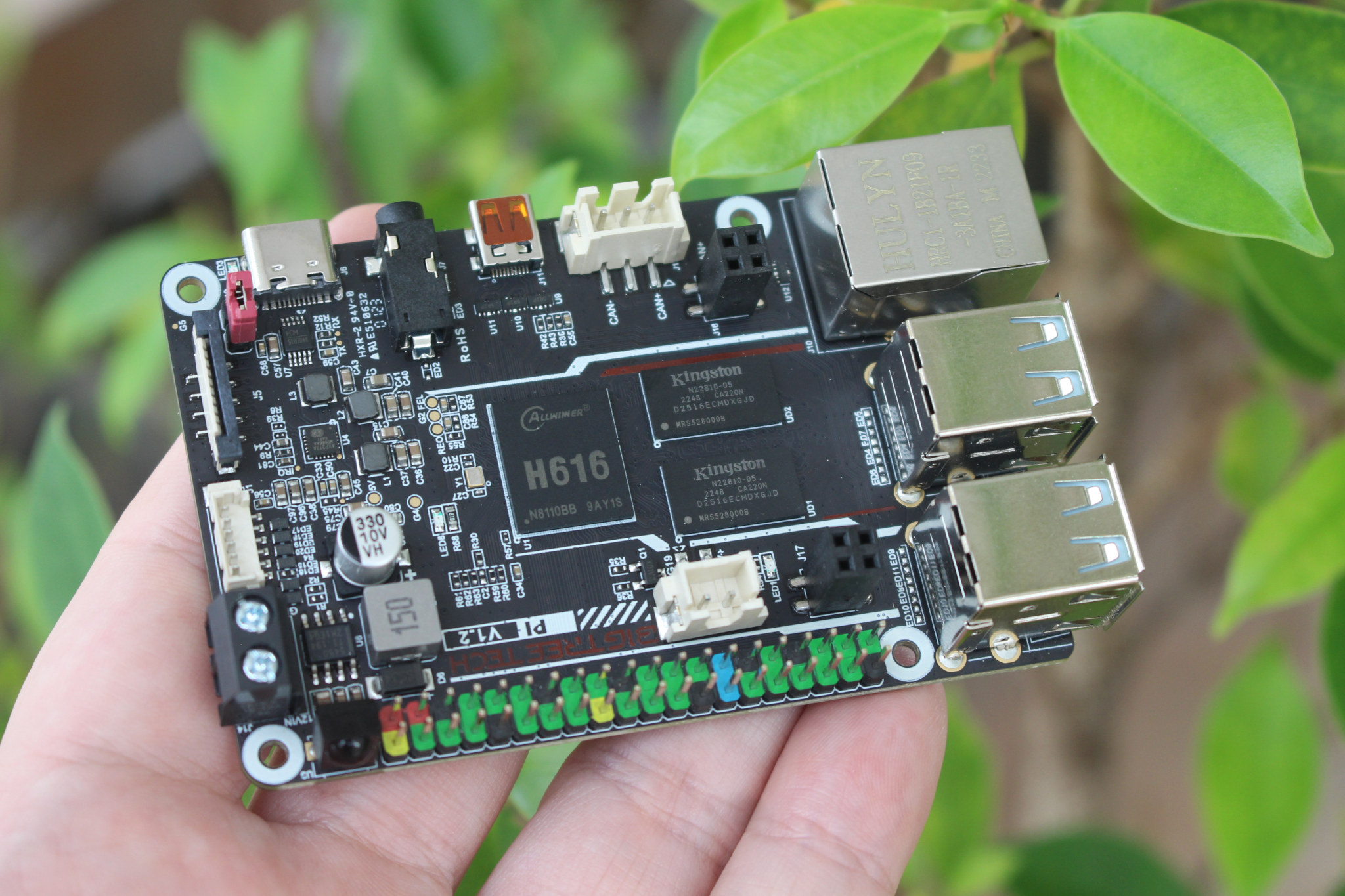As its name implies the Orange Pi Zero 2W is an alternative to the Raspberry Pi Zero 2W with basically the same features and form factor, but equipped with a slightly more powerful Allwinner H618 quad-core Cortex-A53 clocked at 1.5 GHz, and more RAM options from 1GB to 4GB. The new Orange Pi board comes with a mini HDMI port, two USB-C ports, WiFi 5 and Bluetooth 5.0 wireless module, a microSD card for the OS, a 16MB SPI flash for the bootloader, the usual 40-pin Raspberry Pi GPIO header, and a 24-pin “function” connector used for expansion boards and located where the camera connector is on the Pi Zero 2W. Orange Pi Zero 2W specifications: SoC – Allwinner H618 quad-core Arm Cortex-A53 processor @ up to 1.5GHz with 1MB L2 cache and Arm Mali-G31 MP2 GPU with support for OpenGL ES 1.0/2.0/3.2, OpenCL 2.0, Vulkan 1.1 System Memory – […]
Linux 6.5 release – Notable changes, Arm, RISC-V and MIPS architectures
Linus Torvalds has just announced the release of Linux 6.5 on the Linux Kernel Mailing List (LKML): So nothing particularly odd or scary happened this last week, so there is no excuse to delay the 6.5 release. I still have this nagging feeling that a lot of people are on vacation and that things have been quiet partly due to that. But this release has been going smoothly, so that’s probably just me being paranoid. The biggest patches this last week were literally just to our selftests. The shortlog below is obviously not the 6.5 release log, it’s purely just the last week since rc7. Anyway, this obviously means that the merge window for 6.6 starts tomorrow. I already have ~20 pull requests pending and ready to go, but before we start the next merge frenzy, please give this final release one last round of testing, ok? Linus The earlier […]
DietPi News – v8.20 released, NanoPi Neo Air handheld Linux terminal
The latest DietPi v8.20 release of the lightweight Debian-based Linux distribution for SBCs and server systems was outed on July 29, 2023, and on a separate note, a DIY handheld Linux terminal based on the NanoPi Neo Air SBC and running DietPi has been found on the interwebs. DietPi v8.20 release The project team released the new DietPi v8.20 on July 29th, 2023 with the following highlights: Homebridge: New software package bringing Apple Homekit support Kernel updates for Pine64 Quartz64 – Linux 6.4.7 and enabled support for the NFS kernel server FriendlyELEC NanoPi R5S/R5C/R6S series – Linux 5.10.160 StarFive VisionFive 2 RISC-V SBC – Linux 5.15.123 WiFi Hotspot: Enhanced DHCP default settings Fixes and updates for DietPi-LogClear, DietPi-Dashboard, DietPi-LetsEncrypt, PaperMC, vaultwarden, etc… The full changelog can be found on the DietPi website and the source code is hosted on GitHub. NanoPi Neo Air handheld Linux terminal running DietPi While it’s […]
Orange Pi Zero 3 Allwinner H618 SBC ships with up to 4GB RAM
The Orange Pi Zero 3 is a compact Allwinner H618 quad-core Arm Cortex-A53 SBC with 1GB to 4GB RAM, 16MB SPI flash, micro HDMI output, Gigabit Ethernet, WiFi 5 and Bluetooth 5.0, a USB 2.0 port, and two headers for expansion. It provides an update to the Allwinner H616-powered Orange Pi Zero 2 SBC quadrupling the maximum memory to 4GB and embedding a larger SPI flash. The new board basically offers the same ports but in a different layout and a slightly smaller form factor. Orange Pi Zero 3 specifications: SoC – Allwinner H618 quad-core Arm Cortex-A53 processor @ up to 1.5GHz with 1MB L2 cache and Arm Mali-G31 MP2 GPU with support for OpenGL ES 1.0/2.0/3.2, OpenCL 2.0, Vulkan 1.1 System Memory – 1GB, 1.5GB, 2GB, or 4GB LPDDR4 Storage – 16MB SPI flash, microSD card socket Video Output Micro HDMI 2.0 up to 4Kp60 Video composite (CVBS) via […]
Review of BIGTREETECH Pad 7 Klipper pad with Creality Ender-3 Pro S1 3D printer
I received the BIGTREETECH Pad 7 7-inch Klipper pad and tablet PC for review earlier this month. I’ve already tested it with a Raspberry Pi CM4 as a Linux tablet PC with touchscreen, and I’ve now reinstalled the BTT CB1 Allwinner H616 system-on-module to run the pre-install Klipper OS and connect the Pad 7 to a Creality Ender-3 Pro S1 3D printer. When I first booted the Pad 7 it ended up with an error message from Klipper complaining about a missing configuration file. I connected to WiFi and update all software packages, but it didn’t help. It’s just because the Pad 7 needs to be configured for a specific printer. We can do so through the web dashboard accessible through a web browser going to http://btt-pad7.local (unless you’d changed the hostname in the system) We’ve got the same error shown in the web interface as Klipper needs to be […]
Snagboot is an open-source cross-vendor recovery tool for embedded targets
Bootlin has just released the Snagboot open-source recovery tool for embedded platforms designed to work with multiple vendors, and currently STMicro STM32MP1, Microchip SAMA5, NXP i.MX6/7/8, Texas Instruments AM335x and AM62x, and Allwinner “sunxi” processors are supported. Silicon vendors usually provide firmware flashing tools, some closed-source binaries, that only work with their hardware. So if you work on STM32MP1 you’d use STM32CubeProgrammer, while SAM-BA is the tool for Microchip processors, NXP i.MX SoC relies on UUU, and if you’ve ever worked on Allwinner processors you’re probably family with sunxi-fel. Bootlin aims to replace all those with the Snagboot recovery tool. The Python tool is comprised of two parts: snagrecover using vendor-specific ROM code mechanisms to initialize external RAM and run the bootloader (typically U-Boot) without modifying any non-volatile memories. snagflash communicates with the bootloader over USB to flash system images to non-volatile memories, using either DFU, USB Mass Storage, or […]
BIGTREETECH Pad 7 7-inch 3D printer control display runs Klipper on Allwinner H616 SoM or Raspberry Pi CM4
Yesterday, I wrote about the BTT Pi V1.2 Allwinner H616 SBC designed for 3D printers, but also mentioned I had received the Pad 7 from BIGTREETECH which is a software-compatible, but more complete solution with a 7-inch display and an Allwinner H616-powered CB1 system-on-module compatible with the Raspberry Pi CM4. The BIGTREETECH Pad 7 should be more convenient to use with its integrated 7-inch touchscreen display, and if you ever decided you didn’t need it to control your 3D printer anymore, it could always be used as a small Linux computer running Raspberry Pi OS or another operating system. BIGTREETECH Pad 7 specifications: Supported modules BIGTREETECH CB1 v2.2 (included in the kit) – Allwinner H616 quad-core Cortex-A53 CPU with Mali-G31 MP2 GPU, 1GB RAM, 802.11 b/g/n WiFi 4 Raspberry Pi CM4 module with Broadcom BCM2711 quad-core Cortex-A72 CPU with VideoCore IV GPU, 1 to 8GB RAM, 0 to 32GB eMMC […]
BIGTREETECH Pi v1.2 – A Raspberry Pi-sized Allwinner H616 SBC for 3D printers
BIGTREETECH Pi v1.2, also known as the BBT Pi v1.2, is a Raspberry Pi-sized Allwinner H616 single board computer (SBC) specially designed for 3D printers with many of the same ports as the Raspberry Pi 3/4, but also features 12V-24V DC power input and connectors for the ADXL345 3-axis accelerometer, CAN Bus, and so on. The board is equipped with 1GB RAM, a microSD card slot to run the operating system (Debian 11 with Klipper), a 4K capable micro HDMI port, Fast Ethernet and WiFi 4 networking, four USB ports, and the usual 40-pin Raspberry Pi header. BTT Pi specifications: SoC – Allwinner H616 quad-core Arm Cortex-A53 @ 1.5GHz with Arm Mali G31 MP2 with support for OpenGL ES 3.2 System Memory – 1GB DDR3L SDRAM Storage – MicroSD card slot Video Output Micro HDMI 2.0a port up to 4Kp60 resolution SPI port for display Audio – 3.5mm audio jack […]


